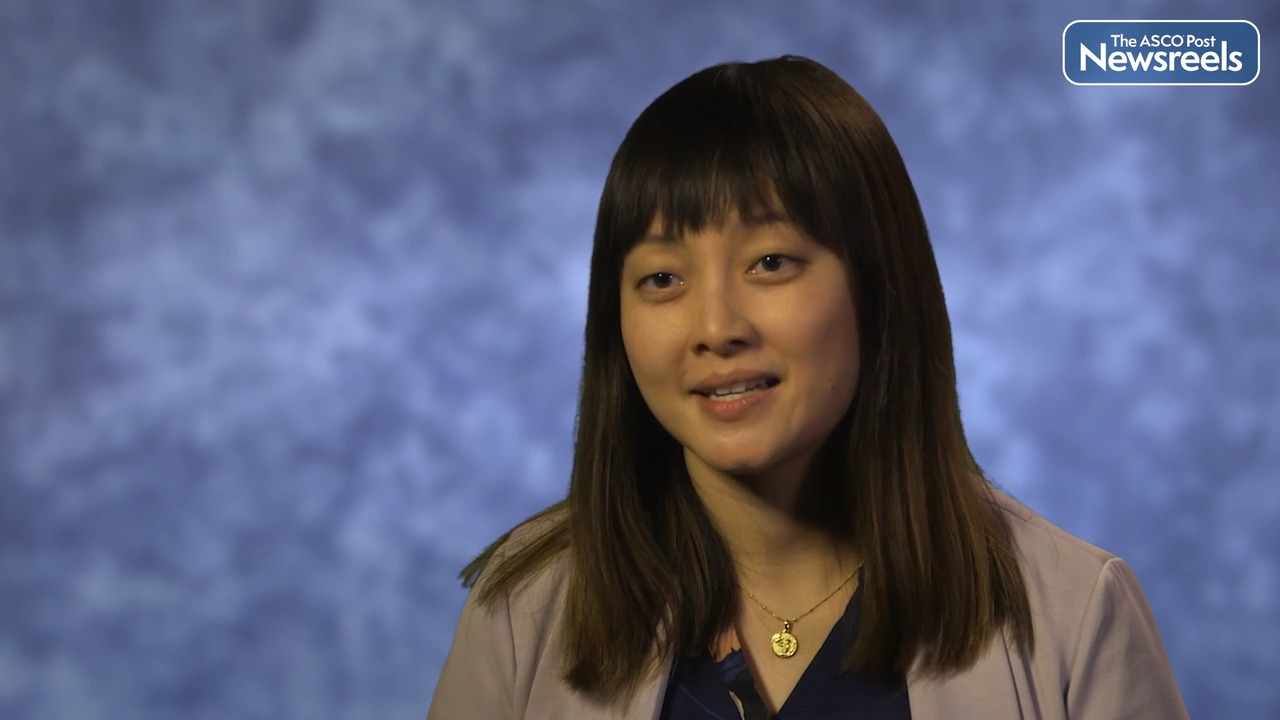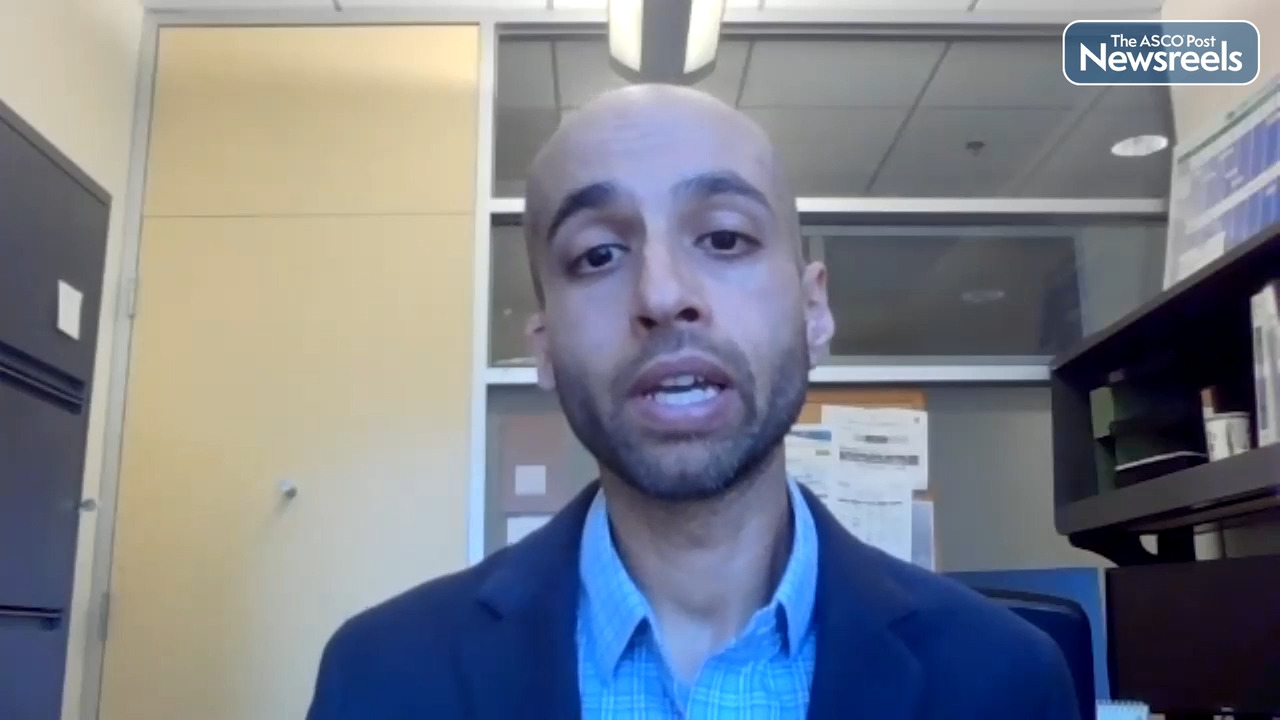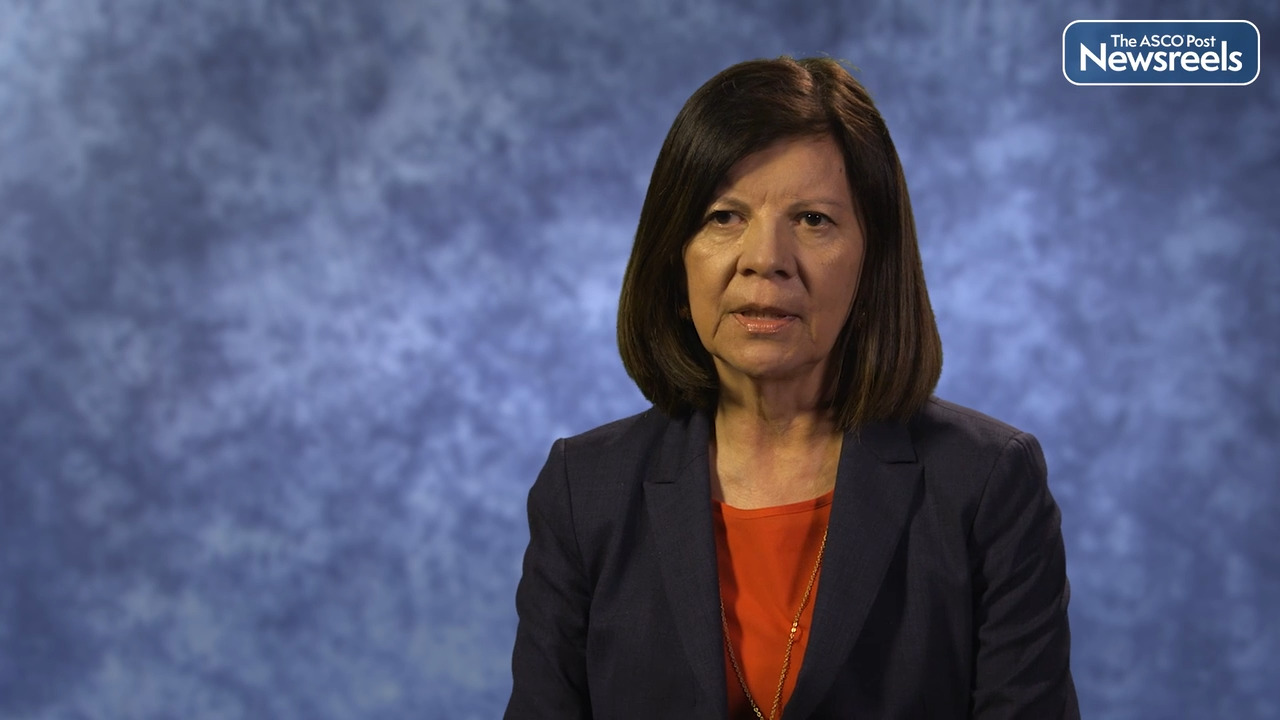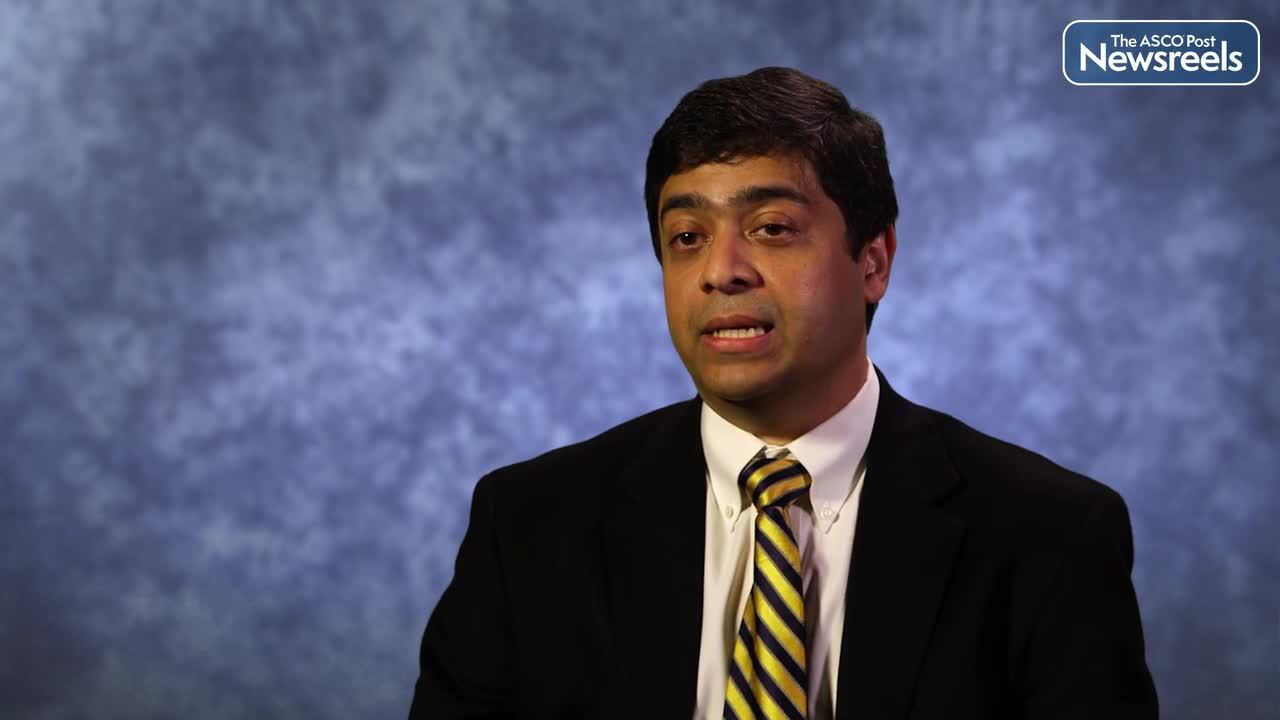John B.A.G. Haanen, MD, PhD, on Solid Tumors: Early Study Results on CAR T Cells and the CARVac Vaccine Strategy
AACR Annual Meeting 2022
John B.A.G. Haanen, MD, PhD, of the Netherlands Cancer Institute, discusses findings from a phase I study designed to test the safety and efficacy of the CARVac (CAR-T cell-amplifying RNA vaccine) strategy to overcome poor CAR T-cell stimulation and responses in patients with CLDN6-positive advanced solid tumors. Men with testicular cancer in particular showed encouraging responses. Overall, some patients showed long-term CAR T-cell persistence more than 150 days post infusion. Partial responses seemed to deepen further over time (Abstract CT002).
The ASCO Post Staff
Jia Luo, MD, of Dana-Farber Cancer Institute, discusses the emerging class of cancer therapies for allele-specific KRAS inhibitors and the importance of their distinct clinical, genomic, and immunologic features. Because KRAS G12D–mutated non–small cell lung cancer is associated with worse responses to immunotherapy, Dr. Luo believes drug development will need to take these differences into account (Abstract 4117).
The ASCO Post Staff
Christine A. Iacobuzio-Donahue, MD, PhD, of Memorial Sloan Kettering Cancer Center, discusses her research on the evolutionary features of advanced stage pancreatic cancers and the insights that may be used to help improve patient outcomes (Abstract PL05).
The ASCO Post Staff
Gautam Mehta, MD, of the U.S. Food and Drug Administration, discusses how accelerated approval of potentially life-saving cancer therapies has been applied in precision oncology. Although “fast-tracking” drugs presents opportunities and challenges, one possible measure of the program’s success is the fact that, to date, no solid tumor accelerated-approval indications have been withdrawn (Abstract DC06).
The ASCO Post Staff
Maria Elena Martinez, PhD, MPH, of the University of California, San Diego Moores Cancer Center, provides an overview of the key components of the Accelerating Colorectal Cancer Screening and Follow-up through Implementation Science program, challenges posed by the COVID-19 pandemic, and opportunities for overcoming these challenges. Although screening and follow-up may reduce the incidence of and mortality from colorectal cancer, these disparities persist in medically underserved populations (Abstract SY30).
The ASCO Post Staff
Vivek Subbiah, MD, of The University of Texas MD Anderson Cancer Center, talks about innovative design of clinical studies that may help demonstrate clinical benefit in precision medicine and advance treatment to deliver the right intervention to the right patient at the right time (Abstract DC06).





